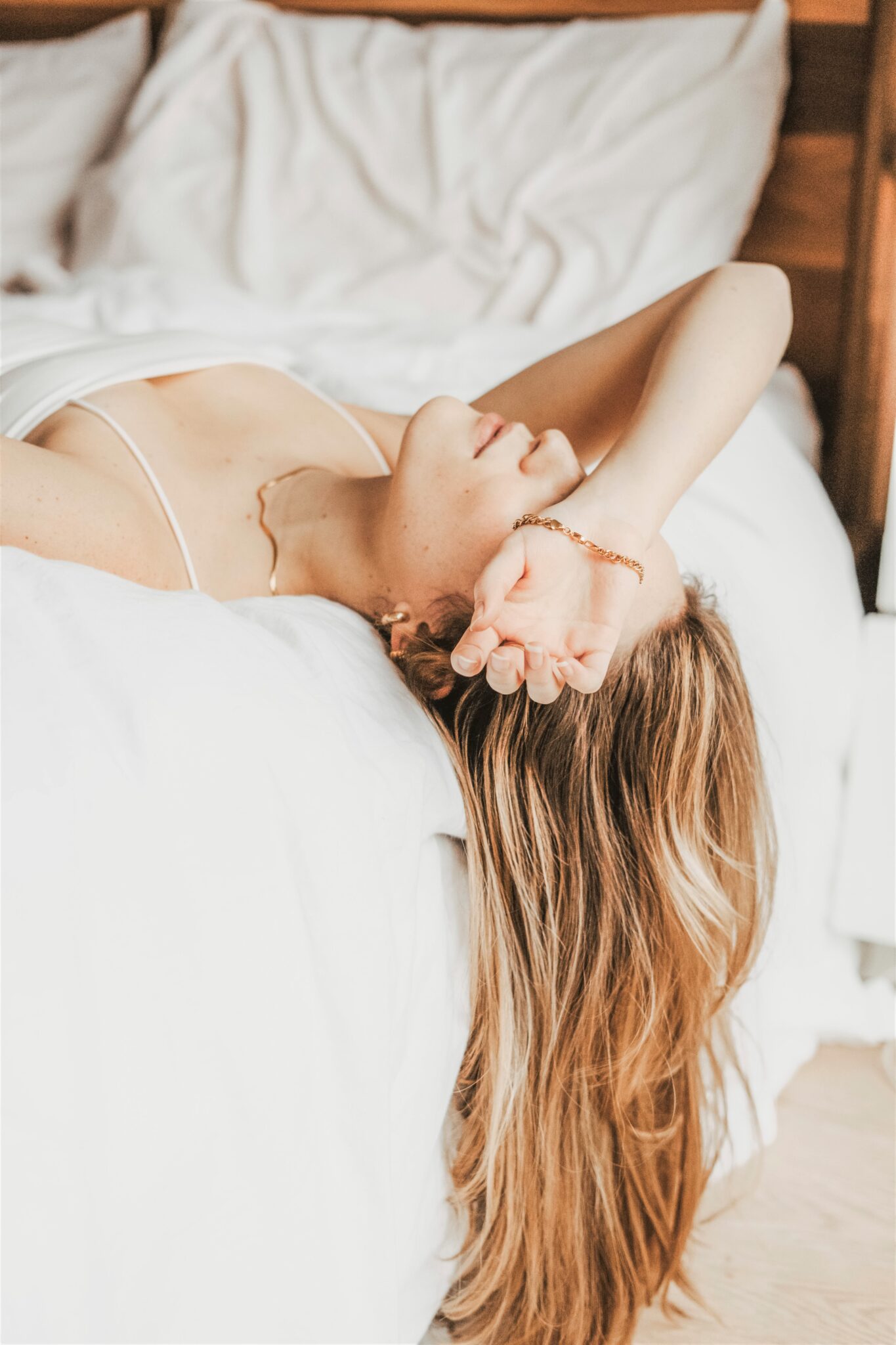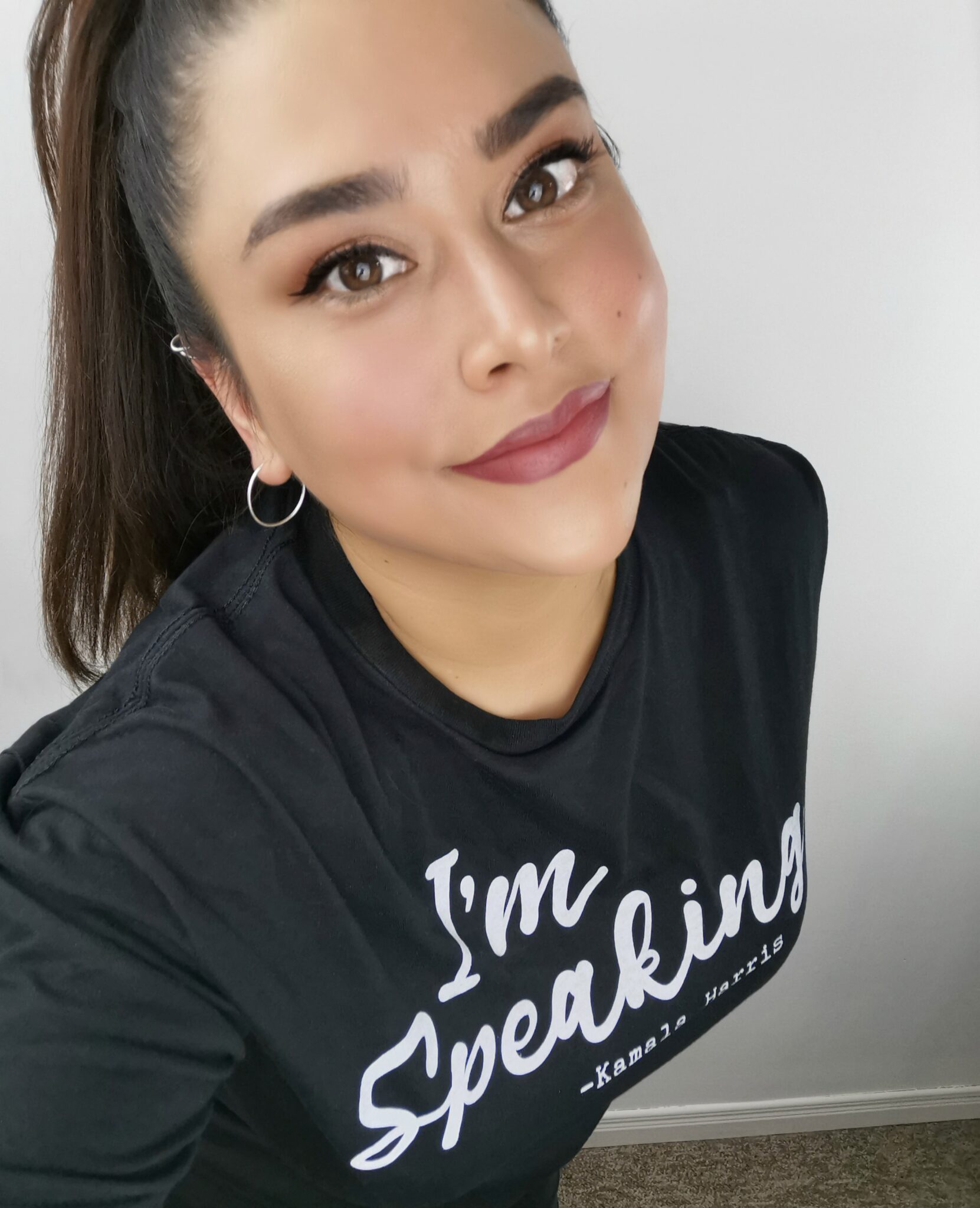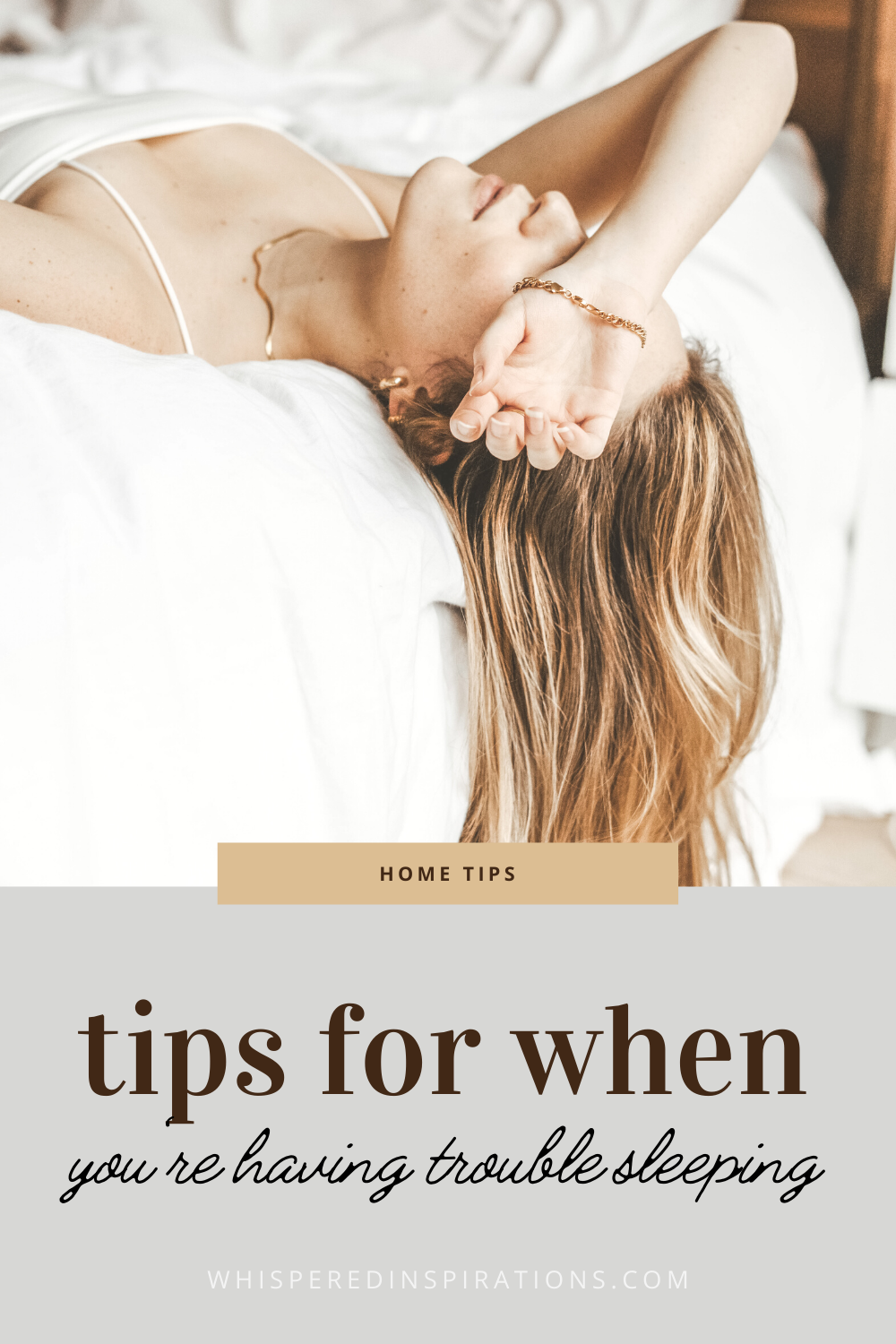Tips for When You’re Having Trouble Sleeping

Tips for When You’re Having Trouble Sleeping
So you come home after a long day of hard work, you change and hit the hay. The second your head hits the pillow, all your tiredness seems to zap away.
You are left staring up at the ceiling for hours while counting down the minutes you have left to sleep. If this sounds familiar, you’re in the right place.
Thousands of people suffer from being unable to fall asleep and stay asleep. It might not sound bad, but it can be a debilitating problem.
Over time, this can develop into a medical condition called insomnia. If you have mild insomnia, you can take steps to improve the quality of your sleep. Let’s see what you can do if you’re having trouble sleeping.
Switch off at Least Two Hours Before Bed
Our bodies run on something called circadian rhythms. These rhythms tell us when it is time to wake up and when it is time to go to sleep.
This rhythm is triggered by the amount of sunlight we receive, knowing when sundown and sunup are by the amount of light.
Unfortunately, the amount of screens we are exposed to confuses our circadian rhythms.
Thus, to signal to our bodies that it is time to go to sleep, you have to stop looking at screens at least two hours before bed.
The blue light from mobile, TV, and laptop screens is the most damaging, while other light also affects it to lesser degrees.
If you have a lot of light in your room from outside, like the glare from street lamps, you can invest in blackout curtains to keep everything pitch dark.
Use Weighted Blankets
If you lay in bed worrying about things and keep waking up in your sleep, you might have insomnia induced by anxiety.
People who suffer from this can often be unable to sleep for days, causing extreme exhaustion and sometimes even hospitalization.
A technique taught to emotional support animals when their handlers have panic attacks is to sit on them.
This feeling of pressure or weight on you can positively affect the body’s parasympathetic nervous system.
It calms down the heart rate and leaves you feeling comforted. You can achieve this at home every night with a weighted blanket.
The best weighted blanket will be appropriate for your size, budget, and purpose – so choose what is most suitable for your situation.
Noise Can Be Your Friend
Silence can feel very uncomfortable to some people. If you’re avoiding putting your phone down because you like the sound of the videos, then you should consider investing in a white noise machine.
Many people who like to fall asleep listening to something often put on podcasts. However, unless a podcast is specifically designed to make you fall asleep, you are just sending mixed signals to your brain.
Your brain tries to listen to the information in the podcast while you try to sleep, leading to sleep issues.
Instead, listen to white noise or soothing instrumental music. White noise machines are beneficial as they have been designed for this purpose.
If they are out of your budget, many apps fulfill the same purpose. However, you will have to resist the urge to browse social media when you turn it on and off!
Clean Up Your Room
A messy room can trigger your anxiety. You worry about when you will get around to organizing everything and end up being unable to sleep.
If you have insomnia and have a messy room, consider this your signal to clean up. If you suffer from seasonal allergies, there’s a bonus of being surprised by how much better you’re feeling after your spring cleaning.
Consider leaving your electronics outside your bedroom if you’re reorganizing your room. It will help prevent you from reaching out to your phone every time you hit a small struggle while trying to sleep.
If you like pleasant scents, consider using a humidifier or diffuser beside your bed instead of keeping a phone charger there. It could help you stick to your plan rather than falling into old habits.
Consider Natural Supplements
Aside from practicing good sleep hygiene and creating a conducive sleep environment, some people find that natural supplements can assist in improving sleep quality.
For instance, incorporating reishi supplements into your routine might be beneficial, as they are known for their calming effects and support for better sleep.
Reishi mushrooms have been used in traditional medicine for centuries to promote relaxation and reduce anxiety, which can be particularly helpful if stress is a factor in your insomnia.
Always consult with a healthcare provider before starting any new supplement to ensure it’s appropriate for your specific needs.
Winding Up: You Have To Want It
These techniques will help you get to sleep. However, these are not magic. You will still have to want to fall asleep and choose to fall asleep.
You get habituated to being unable to sleep, you also get used to giving up trying it.
You May Also Like:
- 7 Bedroom Essentials for Optimal Sleep
- How to Turn Your Bedroom Into a Sleep Friendly Space
- 4 Bad Sleeping Habits Keeping You Exhausted
- The Best Pacifier for Sleeping Babies in 2020
Instead of fighting up, actively choose to fall asleep. If you have to say the words aloud, you should. It will help reinforce your decision and help you focus.
With all this in mind – sweet dreams! I hope these tips can help you if you’re having trouble sleeping.
Do you have any tips for when you’re having trouble sleeping?
Let me know, til then—cheers m’deres!

PIN FOR LATER:

Nancy Polanco is a freelance journalist, lifestyle content creator, and editor of Whispered Inspirations. She is a proud Mom to Gabby and Michaela and partner and best friend to Darasak. Having worked as part of a health care team for almost a decade, Nancy is happy to be back to her passion. She is a contributor to the Huffington Post, TODAY’s Parents, and an Oprah Magazine Brand Ambassador.





